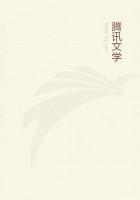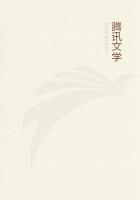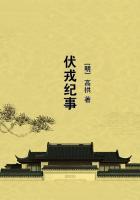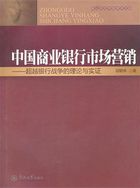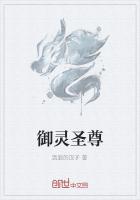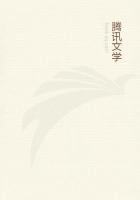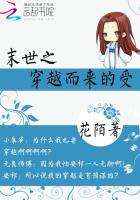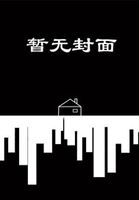"I entreat you not to be startled by my proposal!" (the old gentleman wrote). "You can hardly have forgotten that I was once fond of you, in the days when we were both young and both poor. No return to the feelings associated with that time is possible now. At my age, all I ask of you is to be the companion of the closing years of my life, and to give me something of a father's interest in promoting the future welfare of your son. Consider this, my dear, and tell me whether you will take the empty chair at an old man's lonely fireside." My mother (looking almost as confused, poor soul! as if she had become a young girl again) left the whole responsibility of decision on the shoulders of her son! I was not long in making up my mind. If she said Yes, she would accept the hand of a man of worth and honor, who had been throughout his whole life devoted to her; and she would recover the comfort, the luxury, the social prosperity and position of which my father's reckless course of life had deprived her. Add to this, that I liked Mr. Germaine, and that Mr. Germaine liked me. Under these circumstances, why should my mother say No? She could produce no satisfactory answer to that question when I put it. As the necessary consequence, she became, in due course of time, Mrs. Germaine. I have only to add that, to the end of her life, my good mother congratulated he rself (in this case at least) on having taken her son's advice. The years went on, and still Mary and I were parted, except in my dreams. The years went on, until the perilous time which comes in every man's life came in mine. I reached the age when the strongest of all the passions seizes on the senses, and asserts its mastery over mind and body alike. I had hitherto passively endured the wreck of my earliest and dearest hopes: I had lived patiently, and lived innocently, for Mary's sake. Now my patience left me; my innocence was numbered among the lost things of the past. My days, it is true, were still devoted to the tasks set me by my tutor; but my nights were given, in secret, to a reckless profligacy, which (in my present frame of mind) I look back on with disgust and dismay. I profaned my remembrances of Mary in the company of women who had reached the lowest depths of degradation. I impiously said to myself: "I have hoped for her long enough; I have waited for her long enough. The one thing now to do is to enjoy my youth and to forget her." From the moment when I dropped into this degradation, I might sometimes think regretfully of Mary--at the morning time, when penitent thoughts mostly come to us; but I ceased absolutely to see her in my dreams. We were now, in the completest sense of the word, parted. Mary's pure spirit could hold no communion with mine; Mary's pure spirit had left me. It is needless to say that I failed to keep the secret of my depravity from the knowledge of my mother. The sight of her grief was the first influence that sobered me. In some degree at least I restrained myself: I made the effort to return to purer ways of life. Mr. Germaine, though I had disappointed him, was too just a man to give me up as lost. He advised me, as a means of self-reform, to make my choice of a profession, and to absorb myself in closer studies than any that I had yet pursued. I made my peace with this good friend and second father, not only by following his advice, but by adopting the profession to which he had been himself attached before he inherited his fortune--the profession of medicine. Mr. Germaine had been a surgeon: I resolved on being a surgeon too. Having entered, at rather an earlier age than usual, on my new way of life, I may at least say for myself that I worked hard. I won, and kept, the interest of the professors under whom I studied. On the other hand, it cannot be denied that my reformation was, morally speaking, far from being complete. I worked; but what I did was done selfishly, bitterly, with a hard heart. In religion and morals I adopted the views of a materialist companion of my studies--a worn-out man of more than double my age. I believed in nothing but what I could see, or taste, or feel. I lost all faith in humanity. With the one exception of my mother, I had no respect for women. My remembrances of Mary deteriorated until they became little more than a lost link of association with the past. I still preserved the green flag as a matter of habit; but it was no longer kept about me; it was left undisturbed in a drawer of my writing-desk. Now and then a wholesome doubt, whether my life was not utterly unworthy of me, would rise in my mind. But it held no long possession of my thoughts. Despising others, it was in the logical order of things that I should follow my conclusions to their bitter end, and consistently despise myself. The term of my majority arrived. I was twenty-one years old; and of the illusions of my youth not a vestige remained. Neither my mother nor Mr. Germaine could make any positive complaint of my conduct. But they were both thoroughly uneasy about me. After anxious consideration, my step-father arrived at a conclusion. He decided that the one chance of restoring me to my better and brighter self was to try the stimulant of a life among new people and new scenes. At the period of which I am now writing, the home government had decided on sending a special diplomatic mission to one of the native princes ruling over a remote province of our Indian empire. In the disturbed state of the province at that time, the mission, on its arrival in India, was to be accompanied to the prince's court by an escort, including the military as well as the civil servants of the crown. The surgeon appointed to sail with the expedition from England was an old friend of Mr. Germaine's, and was in want of an assistant on whose capacity he could rely. Through my stepfather's interest, the post was offered to me. I accepted it without hesitation. My only pride left was the miserable pride of indifference. So long as I pursued my profession, the place in which I pursued it was a matter of no importance to my mind. It was long before we could persuade my mother even to contemplate the new prospect now set before me. When she did at length give way, she yielded most unwillingly. I confess I left her with the tears in my eyes--the first I had shed for many a long year past. The history of our expedition is part of the history of British India. It has no place in this narrative. Speaking personally, I have to record that I was rendered incapable of performing my professional duties in less than a week from the time when the mission reached its destination. We were encamped outside the city; and an attack was made on us, under cover of darkness, by the fanatical natives. The attempt was defeated with little difficulty, and with only a trifling loss on our side. I was among the wounded, having been struck by a javelin, or spear, while I was passing from one tent to another. Inflicted by a European weapon, my injury would have been of no serious consequence. But the tip of the Indian spear had been poisoned. I escaped the mortal danger of lockjaw; but, through some peculiarity in the action of the poison on my constitution (which I am quite unable to explain), the wound obstinately refused to heal. I was invalided and sent to Calcutta, where the best surgical help was at my disposal. To all appearance, the wound healed there--then broke out again. Twice this happened; and the medical men agreed that the best course to take would be to send me home. They calculated on the invigorating effect of the sea voyage, and, failing this, on the salutary influence of my native air. In the Indian climate I was pronounced incurable. Two days before the ship sailed a letter from my mother brought me startling news. My life to come--if I _had_ a life to come--had been turned into a new channel. Mr. Germaine had died suddenly, of heart-disease. His will, bearing date at the time when I left England, bequeathed an income for life to my mother, and left the bulk of his property to me, on the one condition that I adopted his name. I accepted the condition, of course, and became George Germaine. Three months later, my mother and I were restored to each other. Except that I still had some trouble with my wound, behold me now to all appearance one of the most enviable of existing mortals; promoted to the position of a wealthy gentleman; possessor of a house in London and of a country-seat in Perthshire; and, nevertheless, at twenty-three years of age, one of the most miserable men living! And Mary? In the ten years that had now passed over, what had become of Mary? You have heard my story. Read the few pages that follow, and you will hear hers.
同类推荐
热门推荐
爸爸给儿子讲的365夜经典故事
《爸爸给儿子讲的365夜经典故事》内容丰富,系枕边书“父母给孩子讲的365夜经典故事丛书”之一。全世界的孩子都在用不同的文字,阅读着书里这些流传百年的经典故事。中国商业银行市场营销
本书主要是对WTO框架下中国商业银行的市场营销理论进行了研究并予以实证。在梳理前人研究的基础上提出中国商业银行市场营销的理论框架,分析当前中国商业银行的营销理念、运行机制、营销战略等,并提出了超越银行战争的市场营销配套政策措施。我的韩娱梦想
2012年12月21日,某宅男悠闲的坐在电脑前看着《runningman》还有《强心脏》等各大韩国综艺类节目,丝毫没有那所谓什么世界末日来临了的紧张感。然而,接下去发生的事,却是谁也没有意料到的......“我勒个去,坑爹啊,这电脑真的会爆炸啊?”这是赵严炎临终前的最后一个想法=。=。。。。。。2006年F&CEntertainment公司开始了大型的选秀活动,引得了许多在校学生纷纷前往。其中一名身穿白色毛衣,黑色紧身牛仔裤的少年正带着一副耳机,悠闲的坐在座位上,等待着自己的顺序。此人不是别人,正是赵严炎。或许现在应该叫他韩天骏。是的,他重生了。不仅重生了,而且还穿越了......伊扎克 拉宾(世界历史名人丛书)
追溯拉宾七十三载的自强不息——他有过从士兵到将军的履历,更有从一名“战神”变为一名和平使者的复杂过程,在回顾他的一生足迹时,你亦会看到以色列这个中东小国成长书简中的一幕幕兴衰荣辱,因为伊扎克·拉宾把一生都献给了这个神秘国度的人民,并带来和平的曙光,他的履历自然也成了整个历史的一部分。

